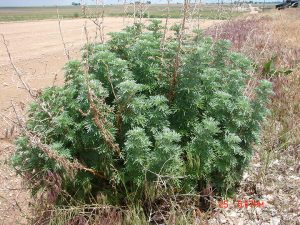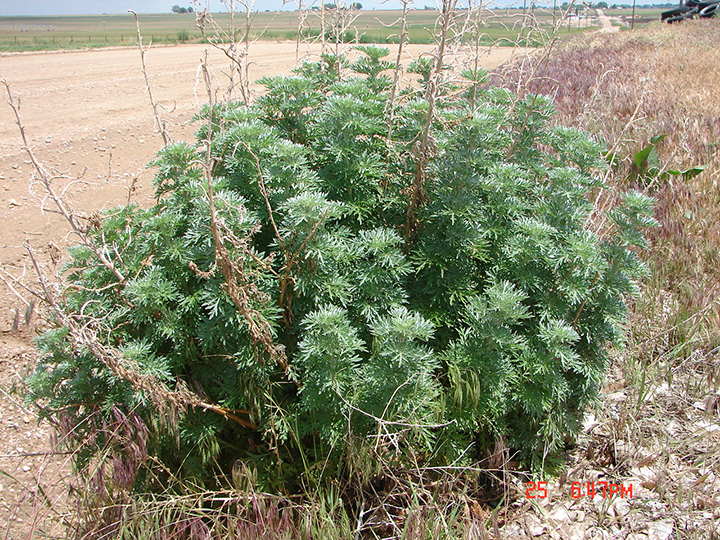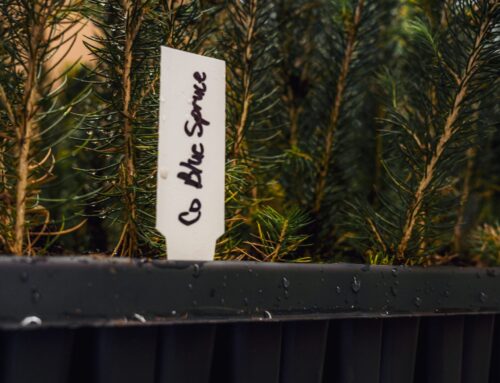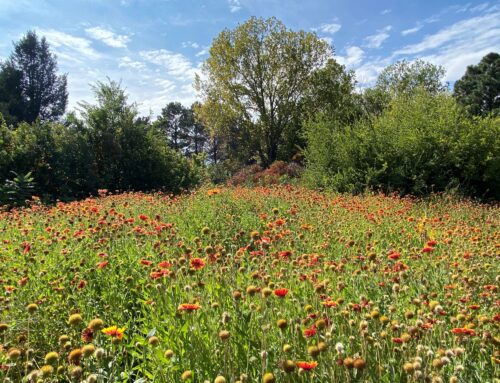Absinth Wormwood was introduced from Europe as an ornamental herb in the early 1800’s, and is easily recognized by its strong sage odor. Absinth Wormwood is one of the key ingredients in absinthe, a controversial green liqueur of 19th century Europe.

Rangeland Absinth Wormwood is a member of the Sunflower Family, most often found in dry soil, overgrazed pastures and rangeland, wastelands, and roadsides. It is a relative newcomer to Colorado, and, with the exception of one mountain area, there are very few acres infested. Absinth has, however, been identified in Weld County in a site far removed from any of the other Colorado sites.
Absinth Wormwood (Artemisia absinthium) is a robust perennial forb that grows 16 to 48 inches tall, with large alternate leaves that are oblong in shape. Leaves are divided 2 to 3 times into deeply lobed leaflets. Coarse stems appear to be clumped and may be woody at the base. Absinth dies back in the winter and regrows from its roots each spring. It has a slightly bluer, gray-green color than our native sages—the color is partly due to numerous very short, fine hairs on the leaves and stems.
Flower stalks appear at each upper leaf node and produce numerous flower heads, 1/8 inch diameter, which appear from late June to mid-August. Each flower head has many small inconspicuous yellow flowers and each fruit contains one seed (which is less than 1/16 inch long.) These small seeds are easily dispersed by wind, water, animals, and hay. Absinth is a prolific seed producer and seed soil longevity is estimated at 10 years. Seedlings may emerge anytime soil moisture is available, and may go unnoticed for some time as the seedling produces several small leaves close to the soil surface before bolting.
Proper grazing management and rotational grazing are among the best preventative measures to maintain a healthy ecosystem. Absinth Wormwood out-competes native species, resulting in reduced forage availability and habitat degradation once established. Milk from cattle that have grazed Absinth is strongly flavored and rejected for consumption. Absinth Wormwood has poor palatability for horses and cattle who tend not to eat it, however sheep and goats will graze on it.
For more information visit www.weldweeds.org or call 970-304-6496 ext. 3770.




